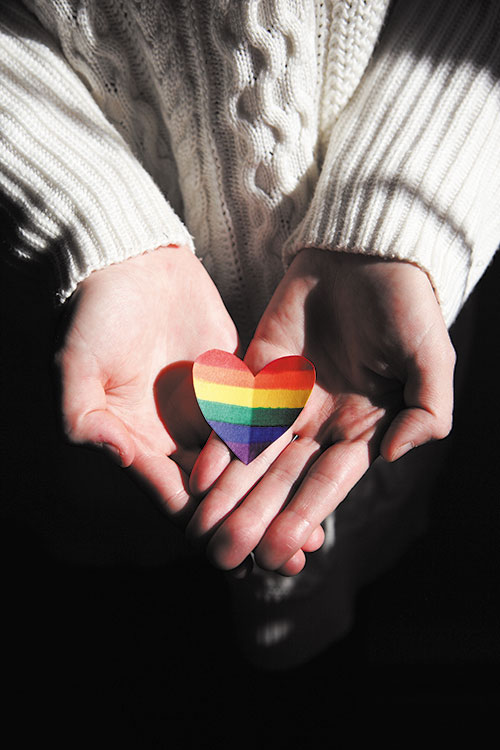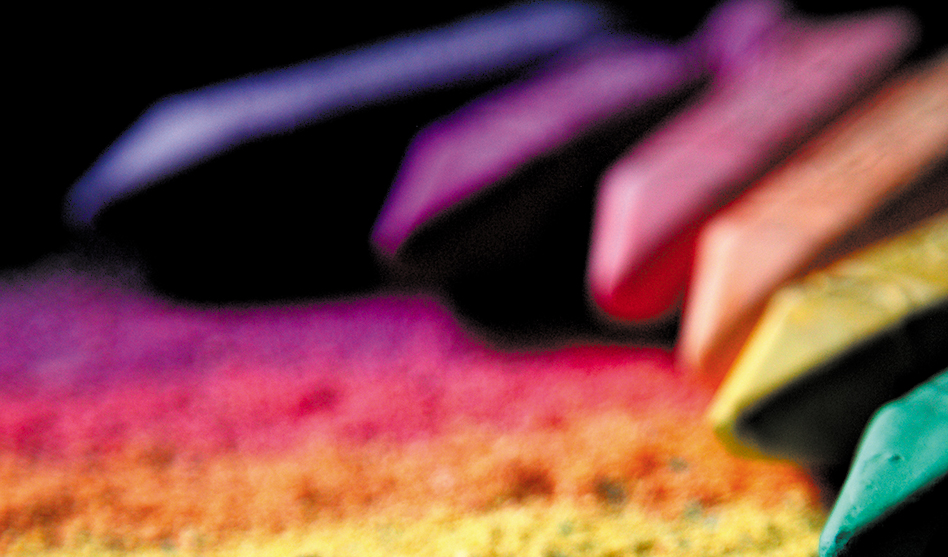Photo by Sharon McCutcheon from Pexels
New website allows LGBTQ people to explore the coming out process
ANTHONY T. EATON | Contributing Writer
8anthonyeaton@gmail.com
Our stories are what connect us and unite us. They let us know we are not alone in our journey, whatever that journey may be. This is especially true for those who are considering coming out, are in the process of coming out or have come out.
Together, Katlyn and Robyn have created an online place for members of the LGBTQ community to share coming out stories, a place where people can come to understand the coming out experience and what it means to be LGBTQ. That place is called Come (Out) As You Are (ComeOutAsYouAre.com). Recently the two women explained for Dallas Voice how and why it came to be.
Dallas Voice: Where did the idea for Come (Out) as You Are come from, and when did you launch? Katlyn: The idea came to me as I was completing my college career at the University of Wisconsin Oshkosh in fall 2020. I was in the middle of job searching and thought to apply my acquired skills through something I was passionate about — person-of-interest journalism, storytelling and reporting. Shortly after I graduated, I bit the bullet and began Come (Out) as You Are. My girlfriend helped me come up with the name.
 After I published a few stories, my former journalism adviser took notice and offered to donate $100 to get my blog moved to its own domain. Around the same time, I asked Robyn [who is trans] to help out with the blog.
After I published a few stories, my former journalism adviser took notice and offered to donate $100 to get my blog moved to its own domain. Around the same time, I asked Robyn [who is trans] to help out with the blog.
How has it been received so far, and what kind of responses have you gotten? Katlyn: Community responses have been wonderful since the beginning. I received word from an old colleague that one of my coming-out story posts encouraged him to come out to his parents, which was greatly affirming. It’s part of my goal to instill confidence and strength in those who may not have been ready to come out. I’ve also heard from my more miscellaneous posts that I’ve helped parents, teachers and even other LGBTQ folks understand parts of the community they hadn’t seen before.
Robyn: I would have to say overall, people love it, and they are happy to have it as a resource and to read about coming out stories and pressing issues the LGBTQ community faces. We have made many great connections with individuals who share it with others, and it just keeps spreading organically, and I can’t thank those individuals enough. We have had a few distasteful comments on posts or ads. No matter the interaction, positive or negative, I strive to interact with love and compassion.
Not only does Come (Out) as You Are provide a place for individuals to share their story, but you also share some important information related to understanding pronouns, things not to say to those who are trans, amongst other topics. Was this intentional or an evolution? Robyn: Some were intentional, and some were an evolution. We decided to write pieces on different genders and sexualities to educate ourselves and our community, so we could be more inclusive and knowledgeable. As for “Things not to say to a trans person,” that came about because we both know an individual who would ask me some very uncomfortable and not-so-trans-friendly questions.
You’re “about” states Come (Out) as You Are is meant to be a safe haven … for those who can’t or choose not to come out. Can you elaborate on that? Katlyn: When I put the term “safe haven” on our about page, I meant it to be a place for people to feel validated. Reading stories about other folks’ experiences can plant a seed in their mind that there are other individuals like them out there. You don’t have to be out to be LGBTQ, so having a little place on the internet to garner education, interest and validation for their identity can be validating and a “safe haven” for them.
 Robyn: Unfortunately, not every story is easy or full of acceptance from parents or peers, so some have to or choose to stay in the closet for a little longer than they’d like to for safety reasons. We hope reading someone’s coming out story will help those who can’t come out or are too scared to gain the courage to do so without sacrificing safety or security.
Robyn: Unfortunately, not every story is easy or full of acceptance from parents or peers, so some have to or choose to stay in the closet for a little longer than they’d like to for safety reasons. We hope reading someone’s coming out story will help those who can’t come out or are too scared to gain the courage to do so without sacrificing safety or security.
Have there been any personal stories that resonate with you? Katlyn: Every coming out story has resonated with me in its unique way. It absolutely astonishes me the resilience each person holds amid their situation and journey to coming out. It’s crucial to let those in the closet know that folks have come out despite a difference in situations and flourished after doing so. Even if the immediate response to coming out isn’t favorable, it seems to be common, among a few people I’ve asked since the start of this project, that their emotions and mental state improve. I can’t stress it enough: Though different, the stories behind the labels pull us closer together.
Robyn: I read or publish stories filled with very different experiences, some I can relate to and others I can’t. But I cherish each and every person behind the story. Overall, though, I may be a bit biased here, but Ivy’s story resonated with me the most so far. I was there for the good majority of her journey. We could relate effortlessly in our experiences with religion, being trans and being a lesbian in a rural environment.
Despite our having more rights, protections and visibility, coming out does not seem to have become easier. Why do you think that is? Katyln: It can stem from several factors, of course. However, I believe there is a deep-rooted fear among youths and even adults for how their families might react. That internal struggle can come from observations children make that their parents never notice. It all comes down to accepting one another for who they are no matter what, to teach children it’s okay to wander from the status quo.
Robyn: I think we still face contention from an older generation that isn’t as accepting and pushes the status quo. If we look at who is leading the government and the influence they have on American people, that can answer a lot of questions. When biased media outlets speak about the LGBTQ community, they never choose the best or most flattering way to present the community. I think another major player in the homophobia gambit is religion. Many people use religion as their driving narrative to be homophobic somehow.
The decision to come out or not, when and how, is a very personal one. Is there any advice you would offer to someone considering it? Katlyn: Let me quote a few individuals who have said it better than I probably ever will:
“I think the most important thing is making sure that you live for yourself first. And if that means you have to distance yourself from your family, then do it. If that means you need to make new friends, then do it.” — Cory, Jan. 5, 2021 (the first person who shared his story with me).
“Build yourself a support system before you move to some of the harder coming out stages; it’s good to slowly build that up as you feel more comfortable.” — Zach, Jan. 12, 2021.
“If you never come out to people, you’re always going to have that worry in your stomach, and it’s never going to go away. … If you’re in a place where you can’t come out yet, your day will come; don’t give up.” — Lilith, May 10, 2021.
Robyn: Make sure you’re in a safe environment to do so. Make sure you have a great support network, and never look back. Get yourself to a place where you can be you without issue and be your best self and if you need support, reach out and get that support. There is absolutely no shame in getting the help you need.

